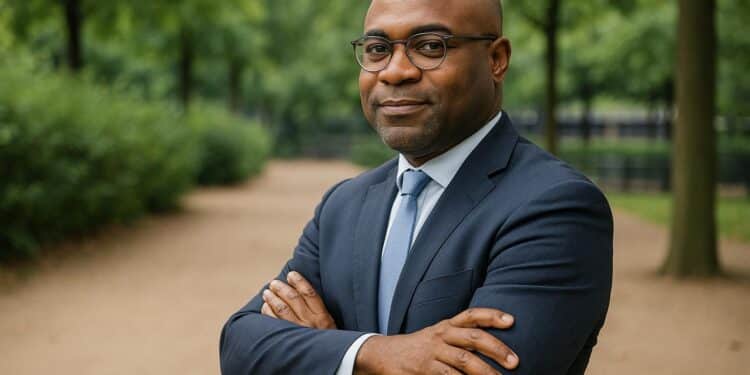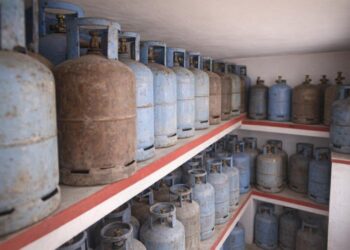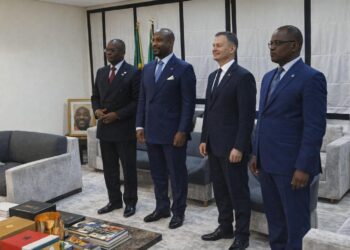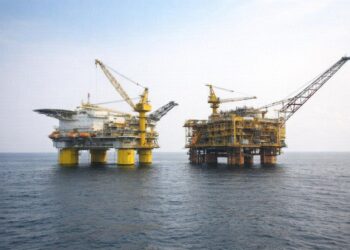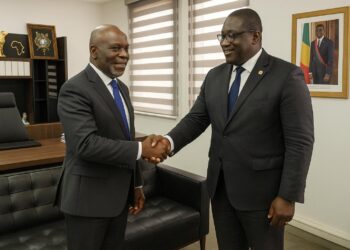Brazzaville reopens the tap of global finance
Twenty years after its last international placement, the Republic of Congo has returned to bond investors with a US$670 million issuance. The move follows the country’s completion of an IMF programme and a visible restoration of macro-stability, according to Finance Minister Christian Yoka.
Speaking to Financial Afrik, Yoka framed the deal as a milestone in normalising market access. “This operation symbolises the credibility we have regained,” he said, noting that many African peers still face closed doors on global desks.
The minister, appointed in January 2025, argues that the timing aligns with stronger growth since 2021 and disciplined budgets. These factors, he stresses, created the room to refinance short-dated domestic liabilities coming due in late 2025 and early 2026.
Inside the US$670 million deal structure
The eurobond carries a coupon just under 10 percent and a seven-year tenor, including a two-year grace period. Yoka calls the 10 percent level “competitive” when benchmarked against local Treasury bills yielding 12–13 percent.
He emphasises the strategic gain of converting three-month paper into a longer instrument. “It totally changes the profile of our portfolio,” he said, insisting that the maturity extension outweighs the apparent pricing premium.
Proceeds will largely retire domestic notes, easing rollover risks and releasing liquidity into Brazzaville’s banking system. The ministry sees that liquidity support as crucial for both government and private-sector borrowers.
Lead managers report solid demand from Europe and the Middle East, reflecting improved sentiment toward the oil-producing economy. Allocations favoured buy-and-hold investors seeking exposure to frontier credits with clearer fiscal anchors.
Debt metrics move onto a safer path
Public-debt ratios remain elevated but are edging down. From a Covid-era peak above 107 percent of GDP in 2020, the stock has fallen to roughly 91 percent. The ministry projects 86 percent in 2026 and 70 percent by 2030, assuming continued primary surpluses.
External obligations represent about 39 percent of the total, diluting exchange-rate risk. Since January the Treasury has reduced domestic issuance by more than 20 percent, part of a deliberate effort to moderate short-term exposure.
Yoka links the improvements to tighter expenditure controls embedded in the draft 2026 budget. “We act with method, discipline and transparency,” he said, adding that the eurobond’s seven-year horizon locks in predictability for investors and rating agencies alike.
Oil receipts anchor the consolidation plan
Hydrocarbons still dominate export and fiscal revenues, cushioning the adjustment. The so-called ‘oil debt’, once a heavy drag, has been “largely settled”, with only US$70 million outstanding, the minister disclosed.
That clearance, together with firm crude prices, delivers primary surpluses the Treasury can channel to debt service or capital spending. Yoka nevertheless underlines ongoing structural reforms designed to diversify the economy and broaden the tax base.
Observers note that Brazzaville avoided the temptation to seek purely concessional funding. By testing the market, the government gains a fresh benchmark curve that may guide forthcoming energy, mining or infrastructure projects under public-private models.
Signals for investors and regional markets
Traders view the bond as an important reference for Central African issuers. Its success could lower perception spreads for neighbours contemplating similar outings, potentially deepening the region’s capital markets.
Domestically, the deal frees banks previously locked into short Treasury positions, enabling greater support for SMEs and consumer lending. The Central African Economic and Monetary Community may thus experience a modest credit impulse.
For portfolio managers, Congo’s comeback offers diversification in an asset class still sparse in francophone Africa. The country’s adherence to IMF-style fiscal anchors and its willingness to publish detailed debt statistics add layers of comfort.
Yoka insists the work continues. “This operation is not an end in itself,” he said. “It improves our access to finance, cleans the debt portfolio and strengthens liquidity both at home and in the wider regional market.”

































